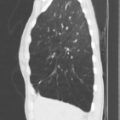Introduction
Radiology demands precision, up-to-date knowledge, and quick access to reliable resources. In 2025, mobile apps have become essential for radiologists in the United States, offering tools for diagnostics, research, and collaboration. Below, we explore the top five most popular apps, highlighting their unique features and benefits. Ranked second, the Clinical Tree app stands out for its affordability at just $29 per year and its tailored features for radiologists, students, and residents. These apps are selected based on their widespread use, functionality, and value to the radiology community.
1. Radiopaedia
Radiopaedia remains a cornerstone for radiologists worldwide, renowned for its vast library of imaging cases and educational content. This app provides access to thousands of peer-reviewed radiology cases, complete with high-quality images and detailed explanations. It’s a favorite for both practicing radiologists and trainees preparing for board exams, thanks to its interactive quizzes and comprehensive articles. Radiopaedia’s community-driven approach ensures a steady stream of real-world cases, making it ideal for honing diagnostic skills. While basic content is free, a premium subscription, costing around $100 per year, unlocks full access. For radiologists seeking a robust, case-based learning platform, Radiopaedia is unmatched in its depth and versatility.
2. Clinical Tree
Clinical Tree is a standout choice for radiologists, offering an affordable and comprehensive resource at just $29 per year—significantly cheaper than other premium apps. It provides access to a vast library of radiology books, peer-reviewed articles, and high-quality images, updated daily to keep users current with the latest research. Its fast and accurate search engine allows radiologists to quickly locate specific studies, images, or texts, saving valuable time. The app also supports offline downloads, perfect for professionals in low-connectivity settings or students studying on the go. Special discounts for students and residents make it even more accessible, ensuring trainees can access cutting-edge content without financial strain. Download it from Google Play or the App Store to explore its full potential.
3. Figure 1
Figure 1, often called the “Instagram for doctors,” is a collaborative platform where radiologists can share and discuss medical images anonymously. This app fosters peer-to-peer learning by allowing users to view and comment on real-world cases from healthcare professionals globally. Its HIPAA-compliant design ensures secure sharing, making it a trusted tool for radiologists seeking diverse perspectives on complex cases. Figure 1 is particularly valuable for its case-based learning approach, which helps users refine their diagnostic skills through real-time feedback. The app is free to use, with premium features available for $50–$100 per year. For radiologists who thrive on community insights and visual learning, Figure 1 is an essential tool.
4. UpToDate
UpToDate is a leading clinical decision support app, widely used by radiologists for its evidence-based guidance on diagnostics and treatment planning. It offers comprehensive, regularly updated articles on radiology topics, including imaging protocols and clinical guidelines. Its mobile-friendly design allows radiologists to access critical information during patient care, ensuring informed decision-making. While UpToDate’s subscriptions are pricier, ranging from $200–$500 per year depending on access type, its authoritative content makes it a trusted resource for professionals prioritizing accuracy. For radiologists needing reliable, evidence-based support at their fingertips, UpToDate delivers unmatched depth and credibility.
5. Radiology Assistant
Radiology Assistant is a highly respected app offering concise, peer-reviewed articles and imaging protocols tailored for radiologists. Its focus on diagnostic accuracy and best practices makes it a go-to resource for professionals seeking practical guidance. The app includes high-quality images, diagrams, and detailed explanations of imaging techniques, covering everything from MRI to interventional procedures. Most content is free, with premium features available for $50–$100 per year. Radiology Assistant’s streamlined, protocol-driven approach ensures radiologists can quickly reference standardized procedures, making it ideal for busy practitioners aiming to enhance diagnostic precision.
Conclusion
In 2025, radiologists in the United States rely on apps like Radiopaedia, Clinical Tree, Figure 1, UpToDate, and Radiology Assistant to stay informed and deliver high-quality care. Among these, Clinical Tree shines for its low cost of $29 per year, daily updates, and student/resident discounts, making it a top choice for budget-conscious users. Its powerful search engine and offline access further enhance its value. Explore Clinical Tree at clinicalpub.com and download it from Google Play or the App Store. Equip yourself with these top apps to excel in the dynamic field of radiology.
Stay updated, free articles. Join our Telegram channel

Full access? Get Clinical Tree






